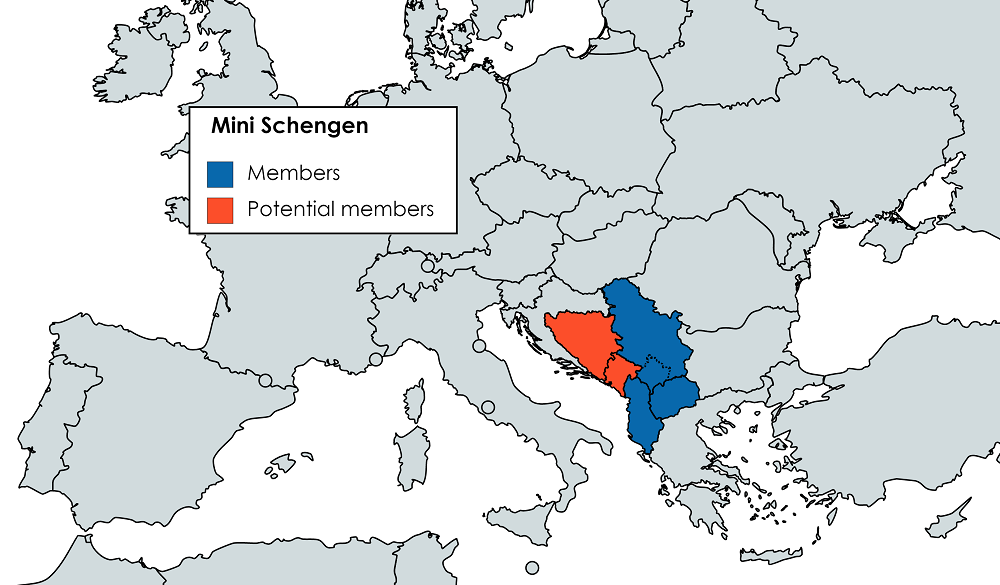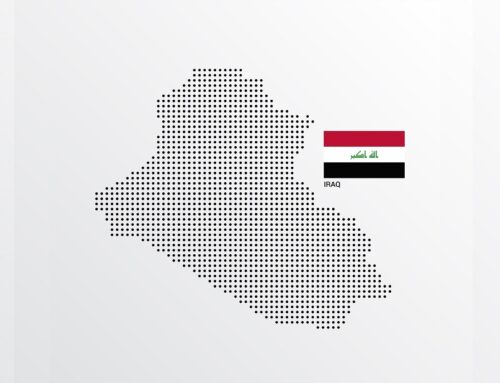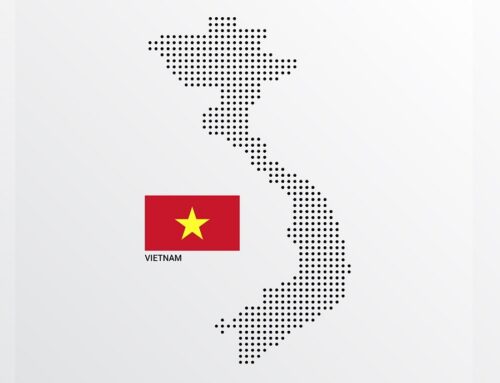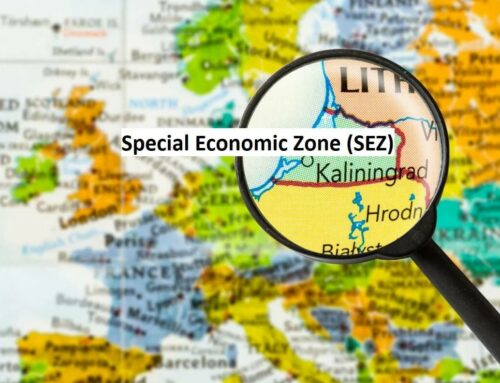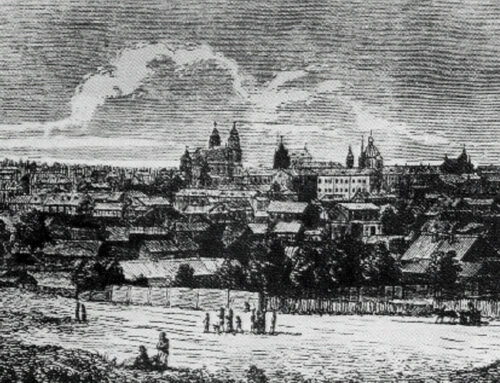Three Western Balkan states saw the inauguration of so-called Mini-Schengen zone, created with the purpose of promoting regional cooperation and ensuring economic development. In 2019, leaders of Serbia, North Macedonia, and Albania signed a declaration of intent to establish free movement of goods, services, persons, and capital. Evidently, mini-Schengen adopts similar principles and values as European Single Market. However, with the still unstable relations between Western Balkan countries, uncertainty of future EU accessions, and post-pandemic economic discourse, concept of Mini-Schengen raises the question of its implementation and effectiveness.
What is mini-Schengen and how it benefits the Western Balkan Six
Albeit proceedings for Mini-Schengen were officially commenced in late 2019, the initial idea was discussed two years prior during the regional summit in Trieste. It was first considered in July 2017 and has enjoyed noticeable support from EU leaders. Need for improvement of economic relations and facilitation of EU integrations were often cited as the main reasons for constructing regional single market (1). In Ohrid in November 2019, the declaration of intent was signed after France vetoed Albania and North Macedonia’s accession to the European Union. If fully implemented, this agreement would ensure visa-free travel, common set of documentation for movement of goods, mutual recognition of work permits and professional qualifications, joint border cooperation, joint projects for development, and cooperation in the field of security (2). The idea was initiated by Serbia, with North Macedonia and Albania being the first to join. Kosovo became fourth and final member following Economic Normalisation Agreements signed on 4th of September 2020 in Washington (3). At the moment, two out of six Balkan states are excluded from this initiative. Montenegro argues that joining mini-Schengen would be a “waste of energy”, citing the fact that this country already has implemented ID-only policy for border-crossing for its neighbours, as well as lifted trade barriers (4). On the other hand, Bosnia and Herzegovina is not completely opposed to the idea of joining; however it refused to clarify its stance without conducting detailed analysis of the initiative (5). Both countries assert that Mini-Schengen cannot and should not be considered as an alternative to EU integrations.
Old problems, new challenges
Despite the initiative enjoying sufficient support from both regional and European leaders, there are several factors that are often brought into question with regards to Mini-Schengen. As expected, the first concern that arouse amid talks regarding this agreement was whether Serbia, as an initiator of the project, has some other political motives for such cooperation. Being the largest state in Western Balkans, regional leaders and political experts have focused on the possibility of Serbia’s political and economic domination over the region. Moreover, the fear of potential creation of “new Yugoslavia” was widely discussed in several Balkan states, primarily in Bosnia-Herzegovina and Kosovo. However, such concerns were quickly addressed by Serbia’s Minister of Construction, Transportation and Infrastructure, Zorana Mihajlović, who asserted that Serbia does not aim to establish another Yugoslavia or to carry out any nationalist projects. She added that this agreement would not act as a substitute for EU membership (6). Regardless of reassurances, President of Kosovo Hashim Thaçi, initially rejected the idea. Prior to Kosovo-Serbia agreement in Washington, this country refused to join the mini-Schengen discussions, citing strained interstate relations in the region as reasons of dismissal. Thaçi claimed that the idea is inefficient and useless if countries such as Serbia and Bosnia-Herzegovina do not recognize independence of Kosovo (7). This situation essentially addressed some fundamental issues of the region and has sparked a discussion whether alleged cooperation is merely a political act, rather than genuine wish for progress. The final challenge that has been brought at the centre of attention in 2020 concerning Balkan Schengen is the COVID-19 pandemic. It is evident that the pandemic had devastating consequences for the global economy and world leaders are attempting to efficiently navigate rebound. Edi Rama, Prime Minister of Albania, argued that establishment of mini-Schengen in Balkans would have positive effects on economic development in post-lockdown period. He believes that it will aid its member states in economic recovery after the pandemic, especially in field of tourism (8).
What lies ahead
Although the idea of forming single market in Western Balkans has been present for several years now, it is yet to be clarified in what manner the project is supposed to operate. This has led several political experts to question whether the initiative will be realised at all, often citing lack of political will and bilateral disputes as key hindrances (9). Meetings that were supposed to be held earlier this year were cancelled and many have felt discouraged. But with Kosovo joining in September, Bosnia and Herzegovina revisiting the initiative, and the region trying to guide economic recovery in post-lockdown setting, idea of Mini-Schengen seems viable and possible again.
References:
1 https://www.dw.com/hr/%C5%A1to-eu-namjerava-sa-zapadnim-balkanom/a-39629297
2 https://www.slobodnaevropa.org/a/crna-gora-procjenjuje-rizik-od-malog-%C5%A1engena-/30264704.html
3 https://www.slobodnaevropa.org/a/kosovo-srbija-hoti-vucic-sjedinjene-drzave-tramp-potpisivanje-bela-kuca/30820416.html
4 https://balkaninsight.com/2019/11/12/montenegro-rejects-balkan-mini-schengen-proposal
5 https://www.oslobodjenje.ba/vijesti/region/lideri-tri-zemlje-dogovorili-mali-schengen-dok-bih-kosovo-i-crna-gore-preferiraju-eu-505753
6 https://rtv.rs/sr_lat/drustvo/mali-sengen-za-slobodni-balkan_1056060.html
7 https://www.slobodnaevropa.org/a/30332191.html
8 http://rs.n1info.com/Region/a624688/Rama-Mali-Sengen-vazniji-nego-ikada-opstrukcije-su-cin-kratkovide-politike.html
9 https://www.glasamerike.net/a/ostaje-li-mini-%C5%A1engen-samo-na-papiru-/5600514.html

